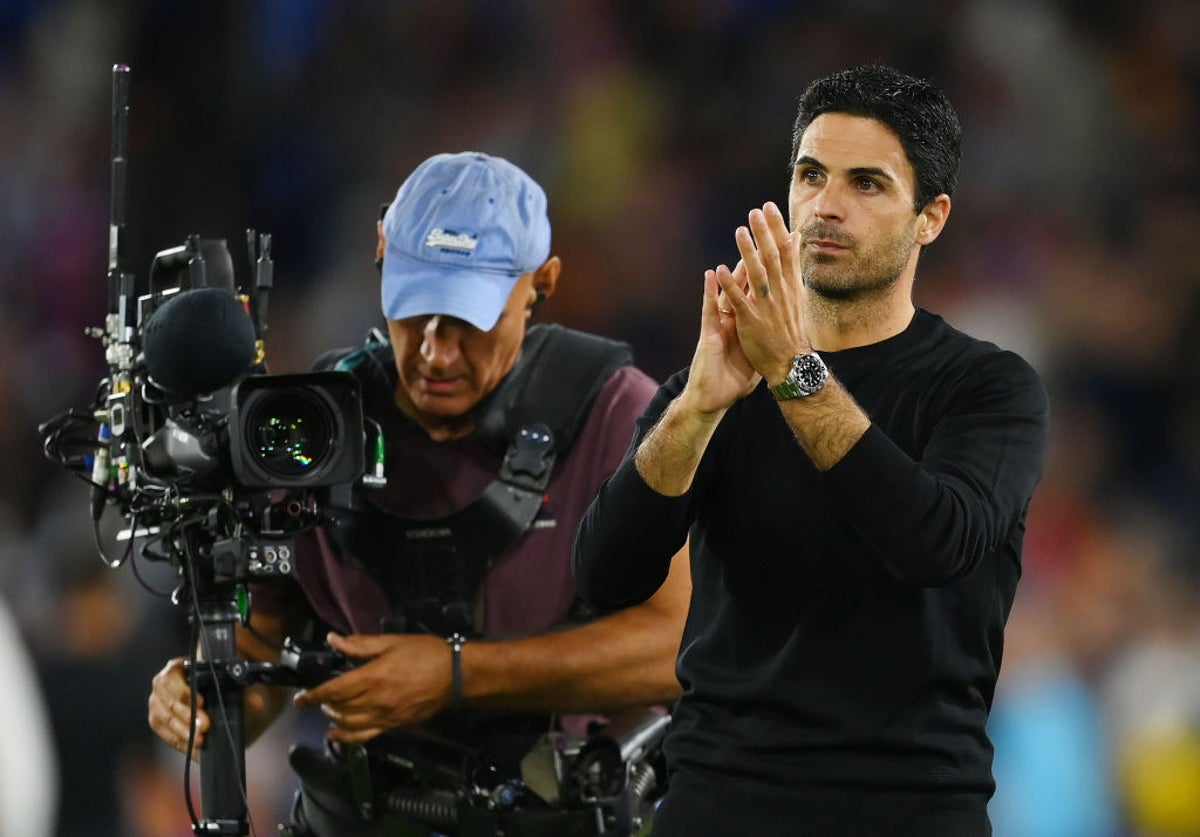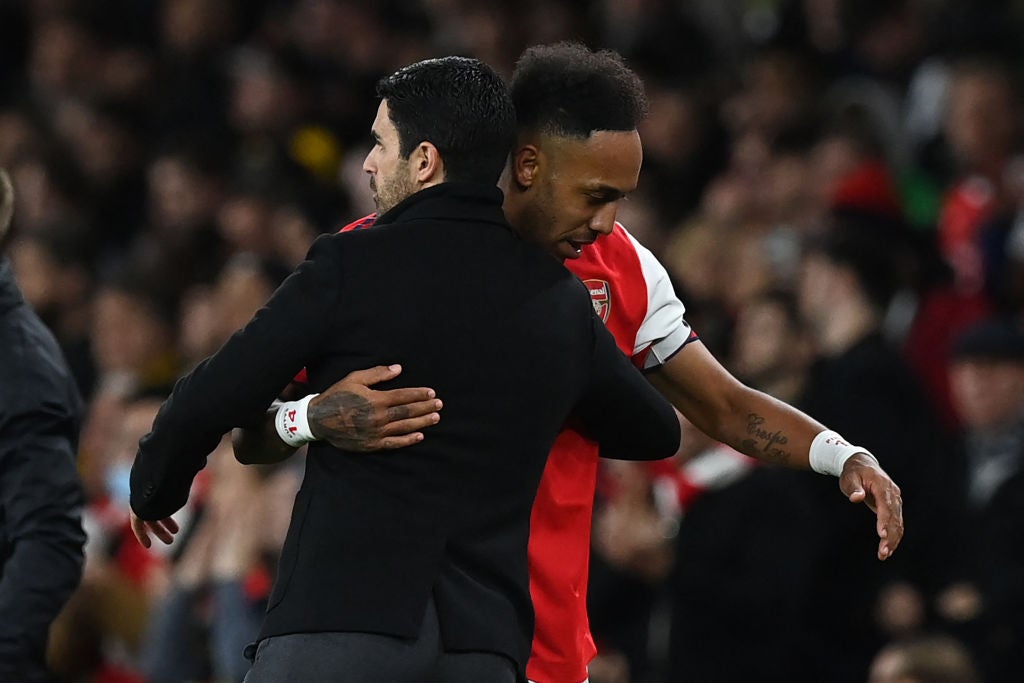
Mikel Arteta pulls an image up onto the whiteboard behind his desk and asks what you can see. Famously, some people see a duck while others see a rabbit, but what Arteta looks at is a metaphor for the journey of his Arsenal team. It’s a very Arteta exercise, but he is using it to explain the “most difficult” aspect of being a manager and as an example of whether players choose to buy into his own very particular style. The point was, if Arteta sees a duck, he wants his players to see a duck, too, but at this moment in Arsenal’s season there were too many in his group seeing rabbits for his liking.
The illusion is a test of perception and in some ways, that it is true of the image of Arteta as well. Many will look at the job he is doing at Arsenal and how that has been reflected during the latest episodes of All or Nothing and decide what they want to see. Is it a fiercely committed and driven young manager with a “crazy” tactical brain, who puts it all on the line emotionally to forge connections with his squad? Or do they see through that and are left with a man who verges on edge of parody with a seemingly endless set of gimmicks and games of Pictionary.
But it is also true that, like with the duck and the rabbit, it is possible to see two sides at once. “It’s difficult to describe the manager without the person,” Arteta says during a particularly open moment. “I’m honest, I’m direct and I’m very demanding as well. In this industry respect is not unconditional. Respect is only determined by results. People start to blame, quickly. Sometimes they see a manager in a way that is not realistic: I suffer, I have feelings, I have kids, I make mistakes, I cry, I laugh. Inside that person, there is somebody else that is dealing with something as well, who is not immune to what is happening.”
Episodes four through six of All or Nothing: Arsenal focus heavily on his biggest decision as a manager, and a period through last season where it made Arteta all the more vulnerable. Arteta was ruthless in freezing out captain Pierre-Emerick Aubameyang, showing a stony edge of authority. There was tension in the team meeting Arteta called to announce that Aubameyang had been stripped of the captaincy and was no involved in the squad. “We have to set ourselves even bigger aims and bigger standards,” he tells them. “If we have any meaning in changing our culture, we have to stand by those words by any actions and with anybody.”

“I’m a pretty straight person,” Arteta says. “I have been raised in a way that certain values are non-negotiables and I have to apply that within the squad.” There was a coldness to how Arteta dealt with Aubameyang’s disciplinary breach last December – even admitting to keeping a dossier of his late arrival times – but once he looked into his captain’s eyes and saw the “trust” had gone, there would be no way back. Respect, commitment and passion are key to Arteta’s values and although Aubameyang remained sidelined throughout, the lingering shots of the striker isolated from the group during his final days at the club’s London Colney training ground showed that, in Arteta’s eyes, it had been lost along the way.
The decision put more pressure on Arteta, the intensity of which can be felt as his voice strains and cracks in the dressing room. “F**ing soft, soft as f***”, is one outburst. “It’s nowhere near, guys, it’s f***ing s***,” follows the defeat to Nottingham Forest in the FA Cup’s third round. There were denials from Arteta that he saw an opportunity to seize total control and took it when Aubameyang was forced out, even if Arsenal appeared somewhat fortunate that it took Barcelona to be lulled into signing the then 32-year-old on a three-year deal for his exit to be sealed at the final hour. It was the key step of Arteta narrowing down on a group who fell in line with his terms, even if it left Arsenal short in areas at the end of last season.
The pressure that is on Arteta and Arsenal to end their wait for Champions League qualification comes from the fact that this is now, undisputedly, his squad. Away from All or Nothing, another image of Arteta now runs in parallel and is acting out in real time, with Friday’s opening Premier League win over Crystal Palace at Selhurst Park displaying the early fruits of those big calls from the previous campaign.

Eight months down the line, a group that tightened over the second half of last season has been boosted by the addition of depth and quality, both of which stood out in the win at Selhurst Park. For that, there were new characters who played key roles. From the “electric” Gabriel Jesus and measured Oleksandr Zinchenko to the outstanding William Saliba’s presence in defence, this was a different Arsenal side to the one that was turned over by Crystal Palace only in April.
The speed of movement and thought in Arsenal’s front line during the opening stages spoke of the work on the training ground and suggested the intensity Arteta demands is now being reached at London Colney. Martin Odegaard made his first competitive outing as Arsenal’s permanent captain and naturally assumes the role of the player who drives Arteta’s values on the pitch. Emile Smith Rowe is still to return, Kieran Tierney’s introduction highlighted the options on the bench and there is hope new signing Fabio Vieira will be able to make contributions as well.
It all points in a positive direction, even what is unfolding once again in All or Nothing is a reminder that last season there were as many low moments as high ones. But in terms of Arteta’s journey, he has found a group who appear to have accepted his demands. Maybe now, there are no rabbits and only ducks.







